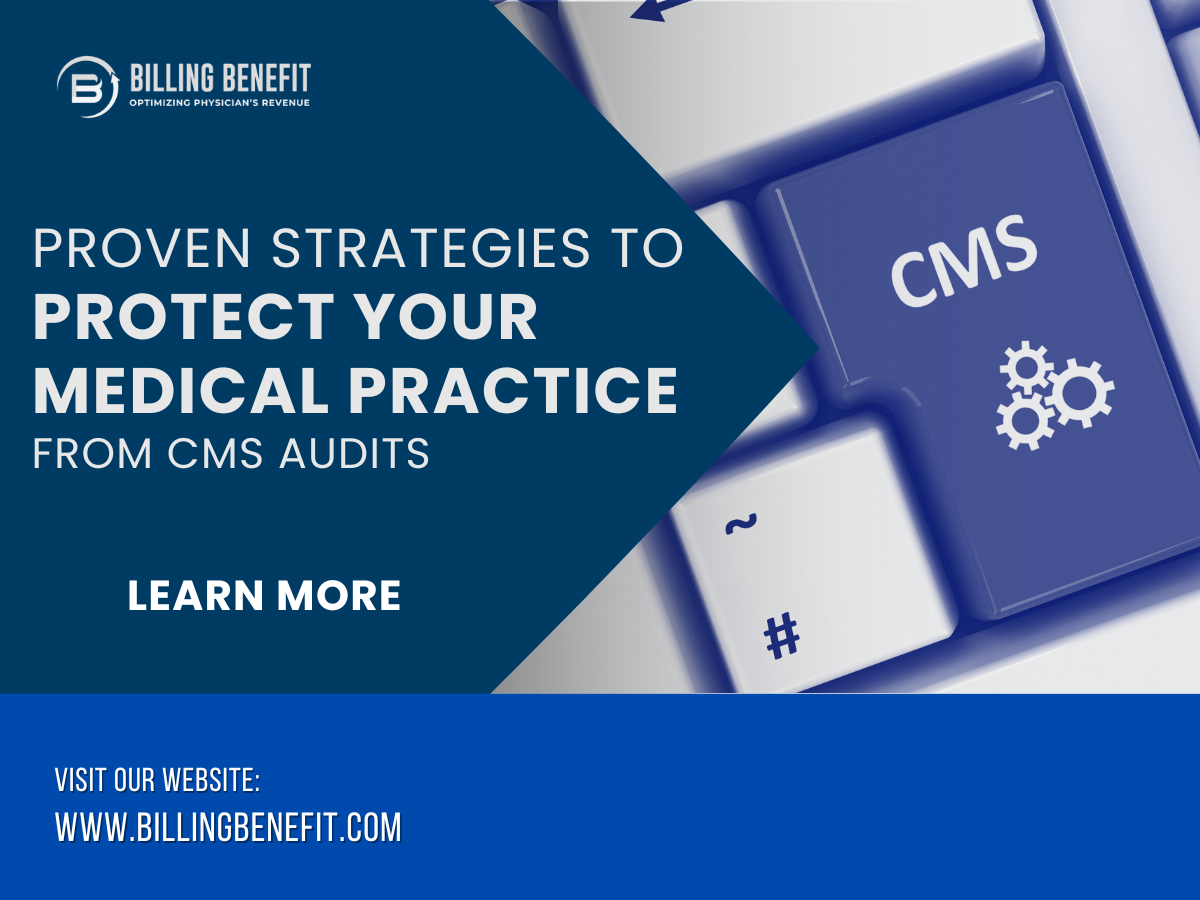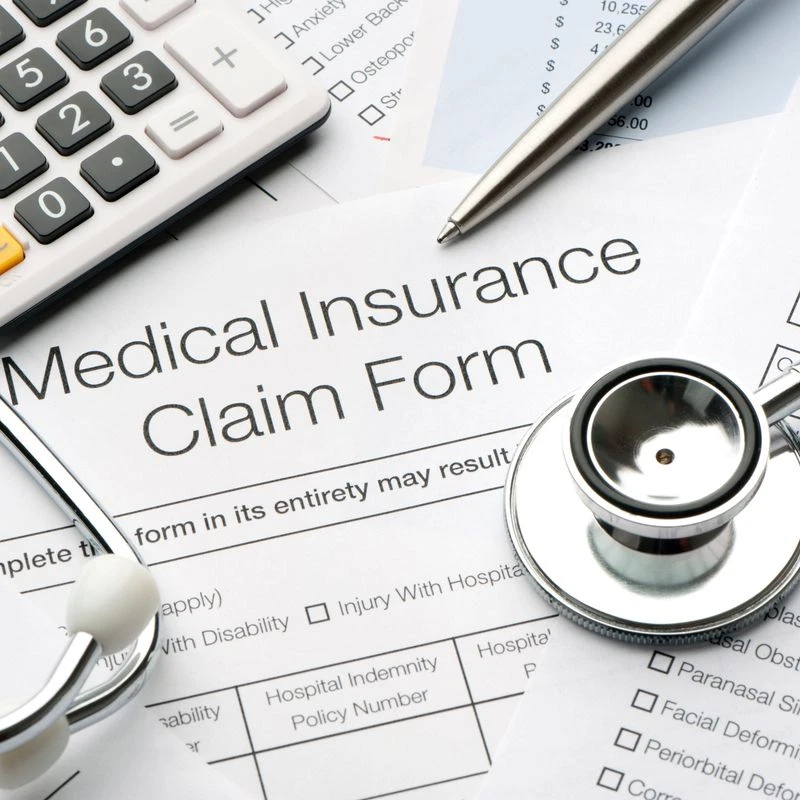We would be talking about CMS Audit Safeguard Strategies. Navigating the complexities of CMS audits is an unavoidable challenge for medical practices across the United States. As the Centers for Medicare & Medicaid Services (CMS) continues to increase its oversight to prevent fraud, waste, and abuse, it is crucial that healthcare providers implement robust strategies to safeguard their practices from the potentially severe consequences of these audits.
Understanding CMS Audits
CMS designs audits to ensure compliance with Medicare and Medicaid regulations. Random triggers or suspicious activities can initiate these audits. Such as unusual billing patterns or excessive claims for certain services. The audit process typically involves a thorough review of billing records, medical documentation, and adherence to CMS guidelines. There are several types of CMS audits, including Comprehensive Error Rate Testing (CERT) audits. Which focus on the accuracy of claims, and Recovery Audit Contractor (RAC) audits, which identify and correct improper payments.
Implementing Effective Compliance Programs
One of the most critical strategies for safeguarding your medical practice from CMS audits. Is to establish and maintain a comprehensive compliance program. This program should include detailed policies and procedures that align with CMS regulations. Regular staff training, and internal audits to identify potential compliance issues before they escalate. A well-structured compliance program not only prevents errors but also demonstrates your practice’s commitment to adhering to regulatory requirements to CMS.
Accurate Billing and Coding Practices
Accurate billing and coding are the cornerstones of avoiding CMS audits. Billing and coding teams must be well-trained and stay up-to-date with the latest CMS guidelines, ensuring compliance within practices. Utilizing standardized diagnosis and procedure codes reduces the risk of errors that could trigger an audit. Moreover, implementing regular internal audits to review claims before submission can help catch mistakes early, reducing the likelihood of CMS flagging them during an audit.
Thorough Documentation Practices
Comprehensive and accurate documentation is essential in defending against CMS audits. Record all patient encounters, treatments, and billing justifications meticulously.. This documentation serves as the primary evidence. To support the medical necessity of services rendered and the accuracy of claims submitted to CMS. Practices should ensure that all electronic health records (EHRs) are complete and compliant with CMS documentation requirements. As any discrepancies can lead to adverse audit findings.
Regular Self-Audits
Conducting regular self-audits is an effective way to identify and rectify potential compliance issues before they attract CMS attention. These mock audits should mimic the criteria and scrutiny of a CMS audit. Focusing on areas such as billing accuracy, documentation completeness, and adherence to CMS guidelines. By identifying and addressing weaknesses proactively, practices can significantly reduce the risk of adverse findings during an actual CMS audit.
Responding Effectively to Audit Notifications
Responding promptly and effectively is critical if CMS selects your practice for an Audit Safeguard Strategy. Begin by understanding the type of audit and the specific information CMS is requesting. Gather all relevant documentation and ensure that your responses are complete and submitted within the specified deadlines. In cases where discrepancies are identified. Consider engaging legal counsel to help navigate the appeals process and to challenge any incorrect findings.
Engaging Legal Counsel Early to CMS Audit Safeguard Strategies
Given the complexity of CMS regulations and the potential financial consequences of adverse audit findings. It is advisable to engage legal counsel early in the audit process. Experienced healthcare attorneys can provide invaluable guidance on compliance matters. Assist in responding to audit requests, and represent your practice in any appeals. Legal counsel can also help prepare for Administrative Law Judge (ALJ) hearings. Which offer the first truly independent review of an audit’s findings.
Conclusion
CMS audits are an inevitable aspect of running a medical practice, but with the right strategies. You can protect your practice. From the severe consequences of audit findings. By implementing a comprehensive compliance program, ensuring accurate billing and coding, maintaining thorough documentation, and conducting regular self-audits. Your practice can navigate the complexities of CMS audits with confidence.
FAQs
What triggers a CMS audit?
CMS audits can be triggered randomly or as a result of suspicious activities. Such as unusual billing patterns, excessive claims, or complaints.
How can I prevent billing errors that lead to audits?
Prevent billing errors by ensuring your coding staff is well-trained. Using the most up-to-date coding books, and conducting regular internal audits to catch errors before claims are submitted.
What should I do if I receive a CMS audit notification?
Respond promptly, gather all requested documentation, and consider engaging legal counsel. To ensure your response is thorough and complies with CMS requirements.
How important is documentation in a CMS Audit Safeguard Strategies?
Documentation is critical. It serves as the primary evidence to support the medical necessity of services and the accuracy of billing. Incomplete or inaccurate documentation can lead to adverse audit findings.
Can I appeal a CMS Audit Safeguard Strategies finding? Yes, you can appeal. The appeal process involves several stages, including rebuttals, redeterminations, and possibly an Administrative Law Judge hearing. Engaging legal counsel is highly recommended.
How often should I conduct self-audits?
Regular self-audits should be conducted at least annually or more frequently. If your practice has recently implemented new billing practices or undergone changes in CMS regulations.










